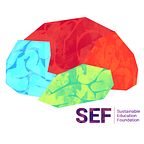Meet Sri Lankan Researcher — Geeth Hewavitharana
What are you currently working on or worked on before?
Determination of changes in fatty acid profile and development of trans fatty acids of thermally processed foods in selected categories with mitigation techniques.
What encouraged you to pursue your research topic?
There are plenty of untouched food-related health issues in the Sri Lankan food market. Before the COVID 19 situation WHO has started a program called ‘REPLACE’ to reduce the Trans Fat which is the major fat source directly related to cardiovascular diseases in the human body.
Most of the countries in the world have quantified the trans fat presence in their food market and already started to indicate trans fatty acid level in the nutrition label on packed food. But in Sri Lanka, we do not have a mechanism for that so far. Hopefully, my research findings may help manage this issue and develop a valuable mitigation system to reduce the development of trans fatty acids during food processing.
What is the name of your current institute? (University name or research lab name)?
I’m currently attached to the University of Sri Jayewardenepura, Sri Lanka.
Where do you find your best inspiration for your work?
At the Department of Food Science and Technology, University of Sri Jayewardenepura, I am especially inspired by my supervisor Prof. S.B. Navartne.
Can you share with us some of your publications?
Yes. You can find my publications here.
What lessons would you share with a budding researcher?
First, you should have an ultimate goal. To achieve that you should break it into short-term goals with specific time frames. By achieving these short-term goals within the allocated time you can move forward to achieve your ultimate goal. For that, you must need a great deal of dedication. All these things should be done inside your mind and you only.
In your opinion, what are the changes that the Sri Lankan education system needs to do, in order to meet the requirements of the international industry and academia?
There’s a huge gap between the industrial experience and the academics. I think, after 1st year of university, lecturers should oversee the potential of the students. At that time students should decide whether they are going for the industry or further studies. Students who are selected to do further studies should be polished with academic requirements such as experiments, academic writing, scholarships, journal rankings and standards, publication ethics, etc.
Others who have been selected to join the industry should be trained accordingly to meet the requirements in the industry to minimize the gap. At least they should provide a one-year internship and need to provide knowledge of the job environment and culture.
